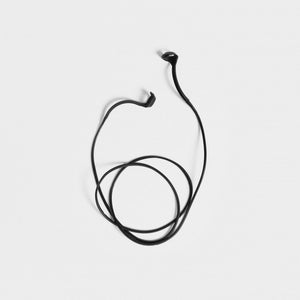
Music, Moto, Kids, Reusable
⛄ Winter deal: 10% off with code LIVETOTHEMAX - Free delivery from €29 🚚

Did you know that going to a musical festival without wearing any earplugs can be dangerous for your hearing and cause irreversible damage? Several studies were done to measure the sound scale.
A decibel (dB) is a unit to measure sound. Or rather, the decibel scale is a logarithmic scale. A person with a good hearing can hear sounds starting from 0 dB. If a sound stays under 75 decibels, the risk of hearing deterioration is zero.
The exposure limit to a sound volume of 75 dB is determined at 8 hours a day. If you stay within this limit, you’ll run no risk of hearing loss. If the sound volume exceeds 75 dB, the time of «no risk» is reduced. This time is halved for every added three decibels.
For example, for 78 dB, the sound exposure period without running any risk is four hours. From 120 to 140 dB, the sensitivity scale is reached and loss of hearing is immediate. The average sound level on musical festivals is between 100 and 110 decibels.
Going to a music festival without wearing earplugs is like:
Standing at 50 meters distance from a plane taking off
At a meter’s distance, hearing a shot fired from a small caliber gun
Standing at less than 5 meters from an ambulance with sirens wailing
Trying to sleep next to a crying, screaming baby
Working with a hammer drill or a chainsaw
Standing in the middle of a symphonic orchestra
The influence of noise on your hearing, while you aren’t wearing any earplugs, depends on different factors:
The quantity of acoustic energy: the sound level of music, the exposure time and the frequencies present in the sound.
The number of exposures and the breaks in between.
Individual sensitivity, for example, the number of middle ear infections you had, your age (children are more sensitive to noise exposure than older people).
Environmental factors, such as living in a busy street.
What are the risks?
Excessive and prolonged exposure to noise can lead to loss of hearing, ear pain, ear buzzing (tinnitus) or hypersensibility to noise (hyperacusis).
Noise has, however, other consequences on your health. It can lead to the following:
Elevated heart rate
Elevated respiration rate
Higher blood pressure
Disturbed digestion
Sleep disorders
Absentmindedness and difficulties to stay focused
Vertigo and balance disorders
Headaches and migraines
Gastric ulcers in case of prolonged exposure to higher sound levels
Pneumothorax risk (the intensity of the vibrations leads to air entering between the lung and the rib cage)
Now that you know the risks involved with an overdose of decibels and music, defend yourself against this kind of damage by wearing earplugs.